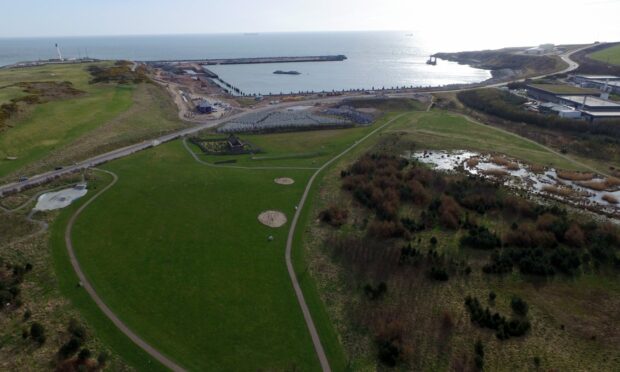A £14 million pot of cash aimed at delivering economic recovery – and new jobs – in Aberdeen and Aberdeenshire has been mostly split four ways.
The Scottish Government launched the North East Economic Recovery and Skills Fund (NEERSF) in August.
It is expected to boost employment prospects for more than 3,000 people across the region.
Now, it has been confirmed that economic development partnership Opportunity North East (One) is getting £6m from the pot to spend on projects aimed at encouraging business growth, including innovation and skills programmes to boost employment.
NEERSF gives the region additional resources to drive recovery, renewal and diversification.”
Jennifer Craw, chief executive, Opportunity North East.
One’s share of the funding will be used for key sector accelerators, an innovation investment fund, a graduate-into-business programme, leadership and entrepreneurial skills, and hospitality apprenticeships.
A total of £3m has been earmarked to help create an Energy Transition Zone (ETZ) in Aberdeen.
This comes on top of £56m of previously announced funding for the project from the Scottish and UK governments.
Council projects get £2m-plus
Aberdeen City Council (ACC) is delivering more than £2m of NEERSF-funded activity through three distinct projects focusing on inclusion, education and employment.
These initiatives are aimed at supporting school pupils to stay in education and progress to employment, as well as providing paid graduate internships and work experience for “those furthest removed from the labour market”.
And £1.7m for RGU
Robert Gordon University (RGU) is using its £1.7m of funding to support those most disadvantaged or affected by the impact of energy transition and or the pandemic, either individually or because of the sector they work in.
The university’s NEERSF-funded projects include upskilling short courses in leadership, data and digital, energy transition and entrepreneurship.
RGU will also use some of its cash for an enterprise school for recent graduates living in the region, an accelerator programme aimed at early-stage innovators and entrepreneurs; and joint projects with partners including Skills Development Scotland.
Projects will ‘make a difference’
One chief executive Jennifer Craw said: “NEERSF gives the region additional resources to drive recovery, renewal and diversification.
“One’s private sector leadership and projects will make a difference to people, start-ups and established businesses over the next six months.
“We will support businesses to grow, innovate and create new jobs in the low-carbon economy across digital tech, food and drink manufacturing, hospitality, life sciences and tourism.
“The action and investment will improve employment prospects for individuals in work, returning to work and starting their careers.”
ACC education operational delivery committee convener M. Tauqeer Malik said: “The pandemic, oil and gas downturn and climate emergency have hit our key sectors hardest, including energy, hospitality and tourism.
“Aberdeen City Council and partners are delivering this programme to boost employment and economic recovery, including investing in skills, supporting people into work and backing high-growth new businesses.
“There is also a strong and very welcome focus on supporting school pupils and helping them prepare for their careers.
“The NEERSF programme complements the broader investment in becoming a leading low-carbon economy that provides high-quality job opportunities.”
‘Real opportunity for growth’
Donella Beaton, vice-principal for economic development at RGU, said: “The NEERSF funding is going to allow us to deliver projects where there is real opportunity for growth within the region.”
ETZ Ltd, the company spearheading the transition zone project, will use its extra funding to provide training to support people into renewables jobs, as well as upskilling oil and gas sector employees, and delivering market development programmes for supply chain businesses targeting offshore wind and low-carbon opportunities.
Andy Rodden, ETZ Ltd energy transition programme director, said: “We have already identified a range of exciting projects that will support the upskilling and retraining of our workforce and the wider local supply chain as part of the energy transition.
“We must ensure we give individuals the opportunity to gain the relevant training and experience associated with renewable energies and encourage our supply chain to transition to low carbon opportunities.
“Our allocation of the North East Economic Recovery and Skills Fund will allow us to do precisely that.”
Opportunity North East accelerates more life sciences research spin-outs


